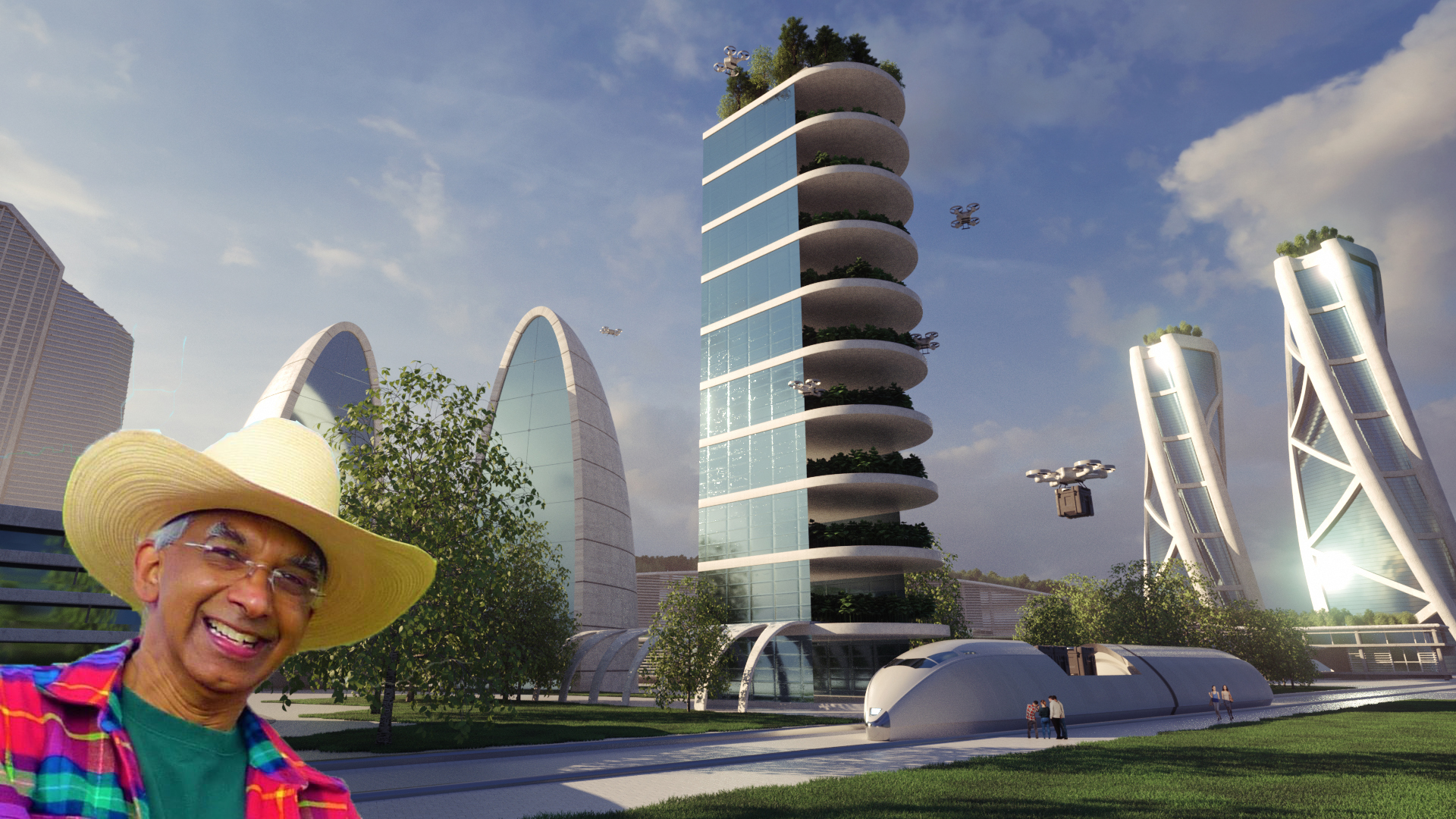
- This event has passed.
Outer Space Activities and the Future of City
9 January 2023 @ 8:00 pm - 9:30 pm UTC

We create and shape our surroundings. Thereafter, our surroundings shape us.
Just as the space exploration community is expanding our presence into the solar system and beyond, a group of thought leaders, including visionary policy makers, architects, engineers and allied professionals are peering at Earth, studying co-relations of various dynamic systems including land use, air and sea agents, and finding new ways to report and apply the data from space-based assets, for the immediate betterment of humanity. Our cosmopolitan cities, urban and suburban landscapes and dwellings are already using space assets including crew on orbiting space stations and allied technologies to monitor, inform and enhance quality of life. Orbiting spacecraft also help predict, alert and even prevent hazards, both natural and manmade, from affecting populations adversely. Future cities and their amenities including active adaptive and agile response systems that use artificial intelligence are already shaping the built environment.
A short bio
Madhu Thangavelu conducts the ASTE 527 graduate Space Exploration Architectures Concept Synthesis Studio in the Department of Astronautical Engineering within the Viterbi School of Engineering at the University of Southern California. He also teaches the Arch599 Extreme Environment Habitation Design Seminar in the School of Architecture, where he is a graduate thesis adviser. Mr.Thangavelu’s educational background is in Architecture(Masters in Building Science, USC School of Architecture 1989) and in Engineering(Bachelors in Science and Engineering, National Institute of Technology, Calicut, India, 1980). He is also a graduate of the inaugural summer session of the International Space University held at MIT in 1988. Versions of Madhu’s masters thesis(conceived during ISU ’88 at MIT)entitled “MALEO: Modular Assembly in Low Earth Orbit. An Alternate Strategy for Lunar Base Establishment” were published in several journals worldwide. At USC, he was mentored by and worked as a research assistant and research associate under Prof..Eberhardt Rechtin, professor of Electrical, Systems and Aerospace Engineering,(while he was creating the Systems Architecting Engineering program at USC), considered the chief architect of NASA’s Deep Space Network and President Emeritus of Aerospace Corp. He is a co-author of the book “The Moon: Resources, Future Development and Colonization”, John Wiley &Sons 1999, and the second Springer/Praxis edition was published in 2007, third edition in preparation. He is a former Vice Chairman for Education, Los Angeles Section of the American Institute Of Aeronautics and Astronautics(AIAA). He has directed Space Exploration Projects at the California Institute of Earth Art and Architecture. Mr. Thangavelu is also the invited author of the chapter “Living On the Moon” in the Encyclopedia of Aerospace Engineering, a major reference work published by John Wiley and Sons in October 2010, updated in 2012. He was on the team that won the coveted NASA NIAC Phase 1 and 2 awards consecutively for developing robotic building technologies on the Moon and Mars with PI Prof.Behrokh Khoshnevis. Mr. Thangavelu’s concept creation work was greatly appreciated for proposing ideas that pointed to the “leading-edge sensor concept” for return to flight of the space shuttle fleet. Mr.Thangavelu is on the faculty of the International Space University, an international organization that offers advanced interdisciplinary, intercultural and international training for promising leaders and space professionals. He is the North American coordinator for the International Moon Village Association and is a Director of the National Space Society(NSS) and also the NSS Vice President and Liaison for NSS India.
Follow the Livestream on the Space Renaissance YouTube Channel: https://youtu.be/nTK8QGE9Qeo
and click ‘going’ on the Facebook Event: https://www.facebook.com/events/1267981330436532/